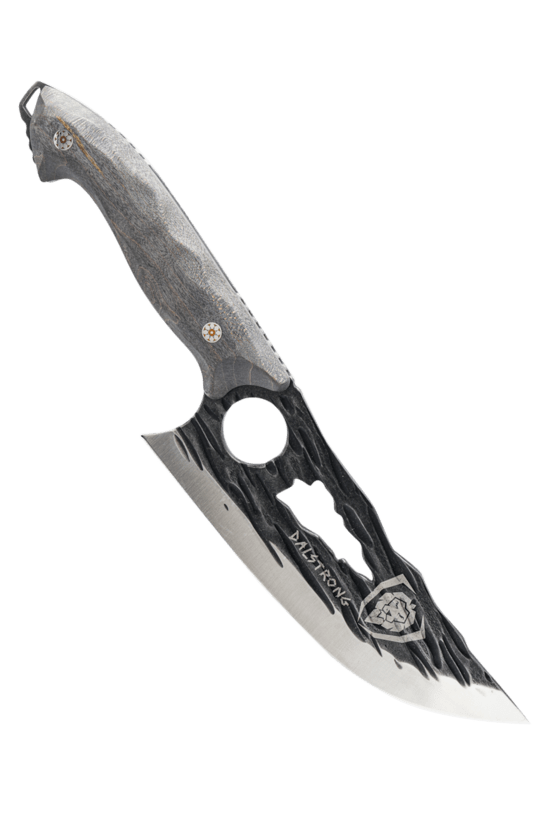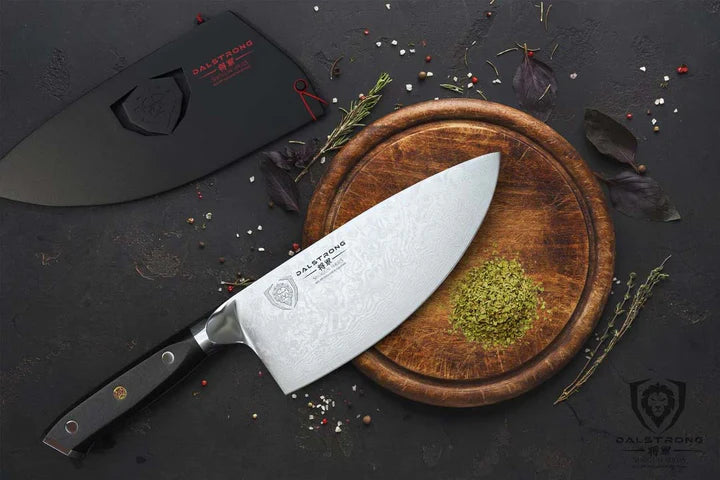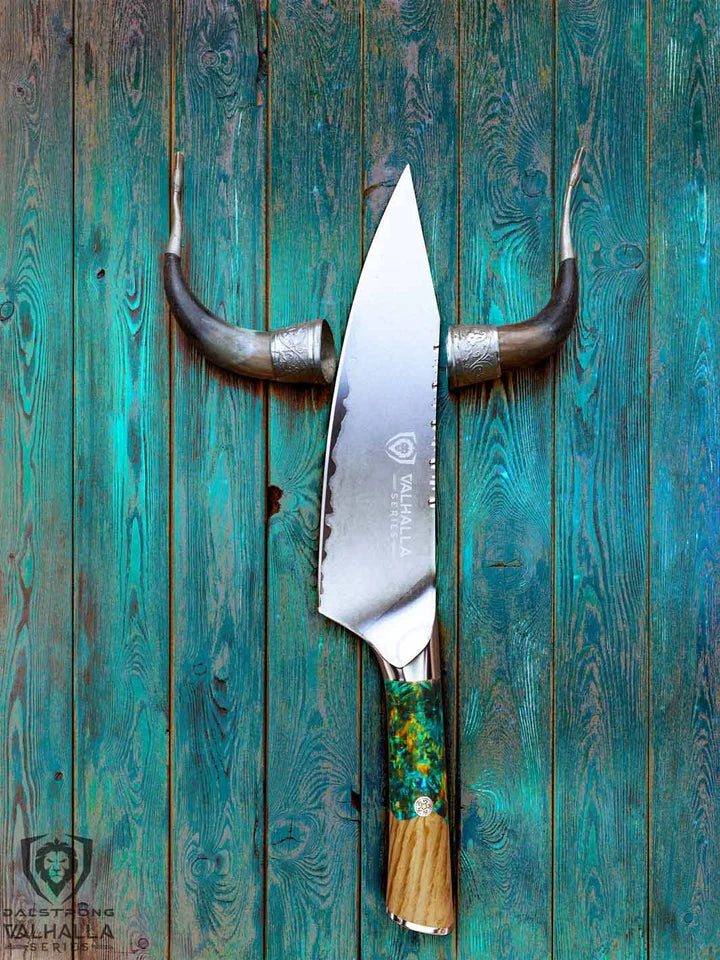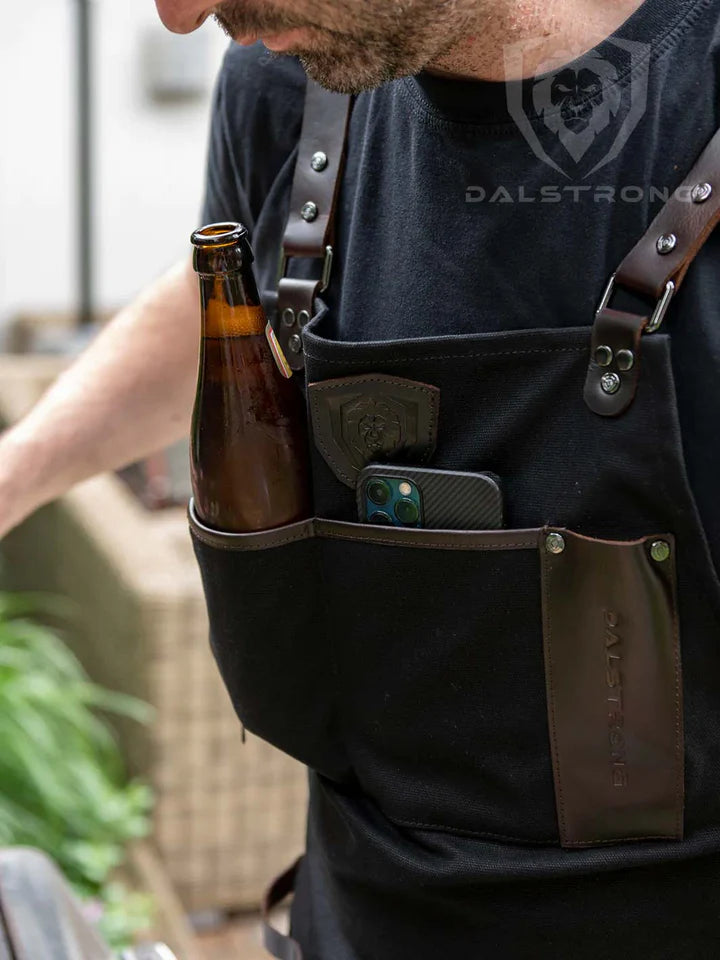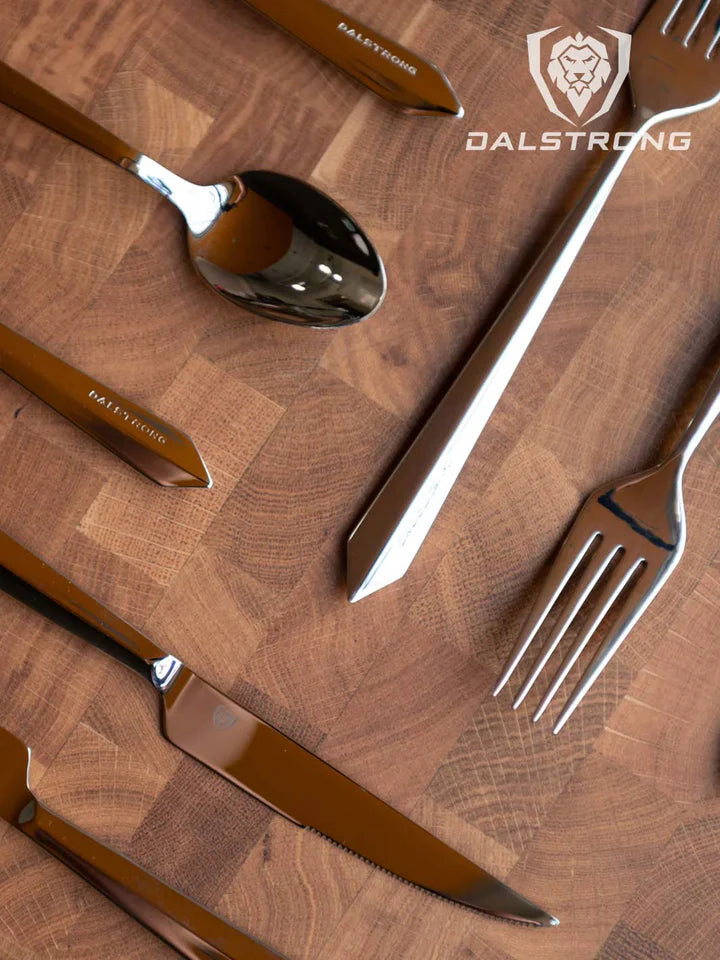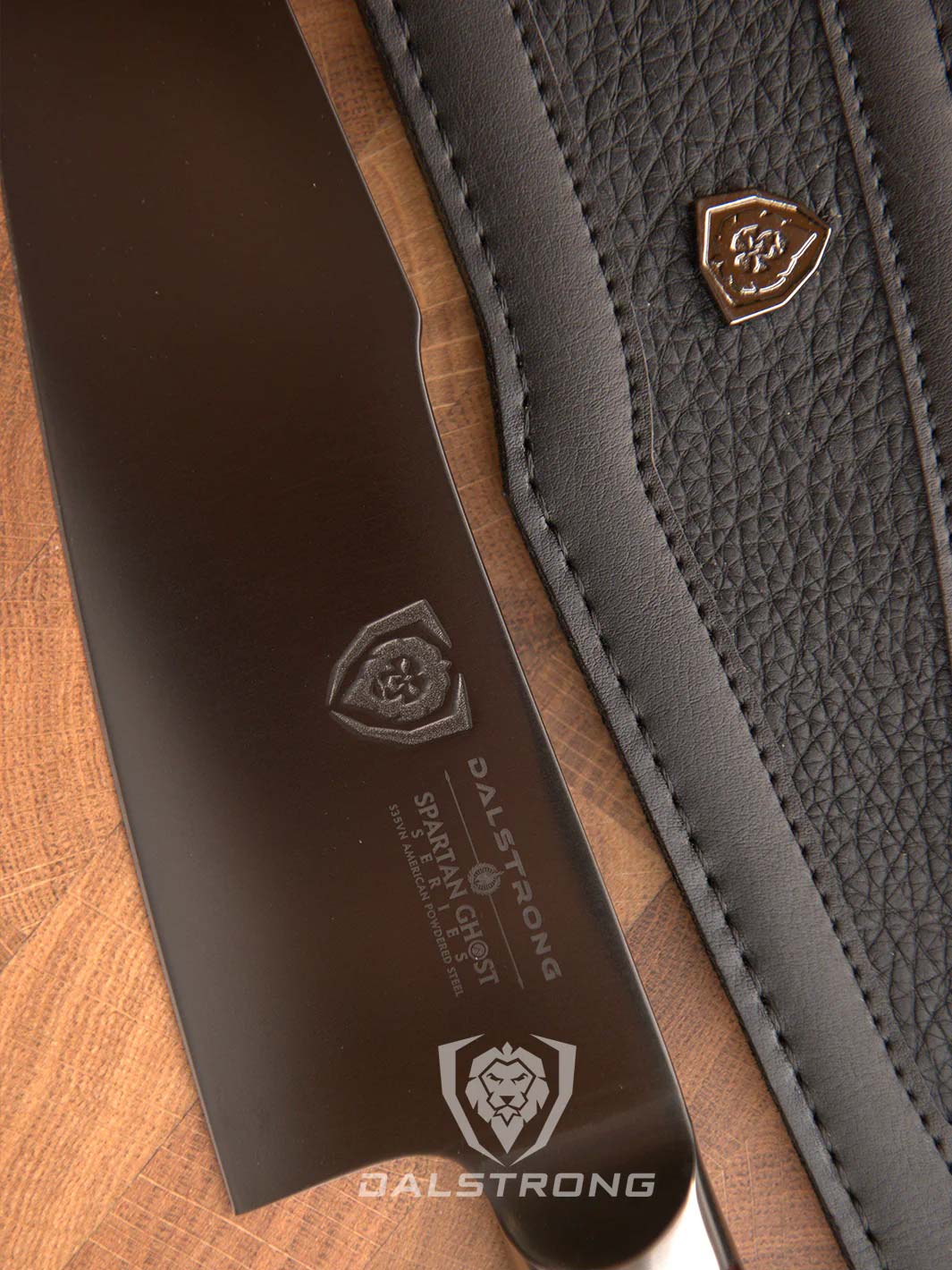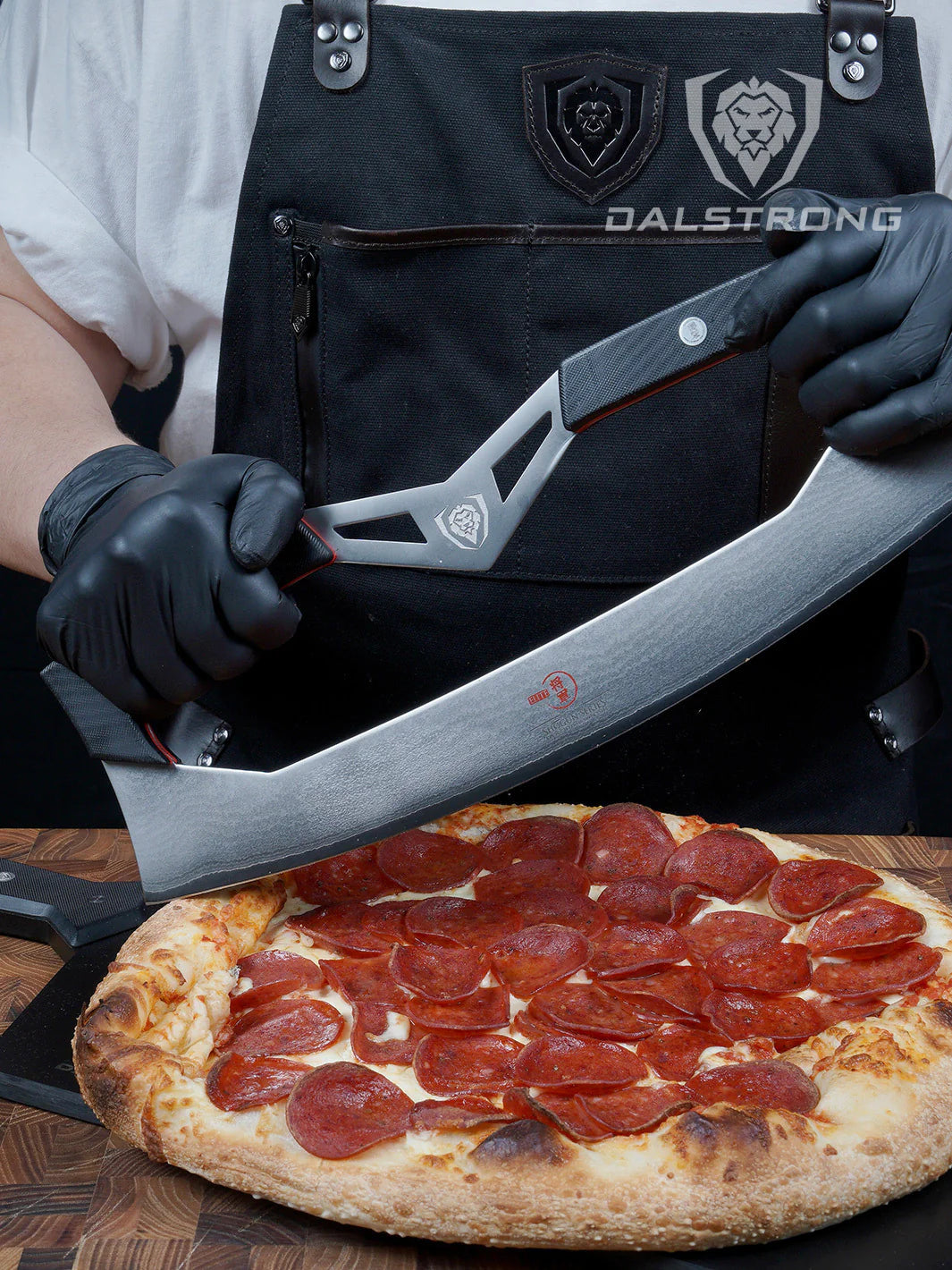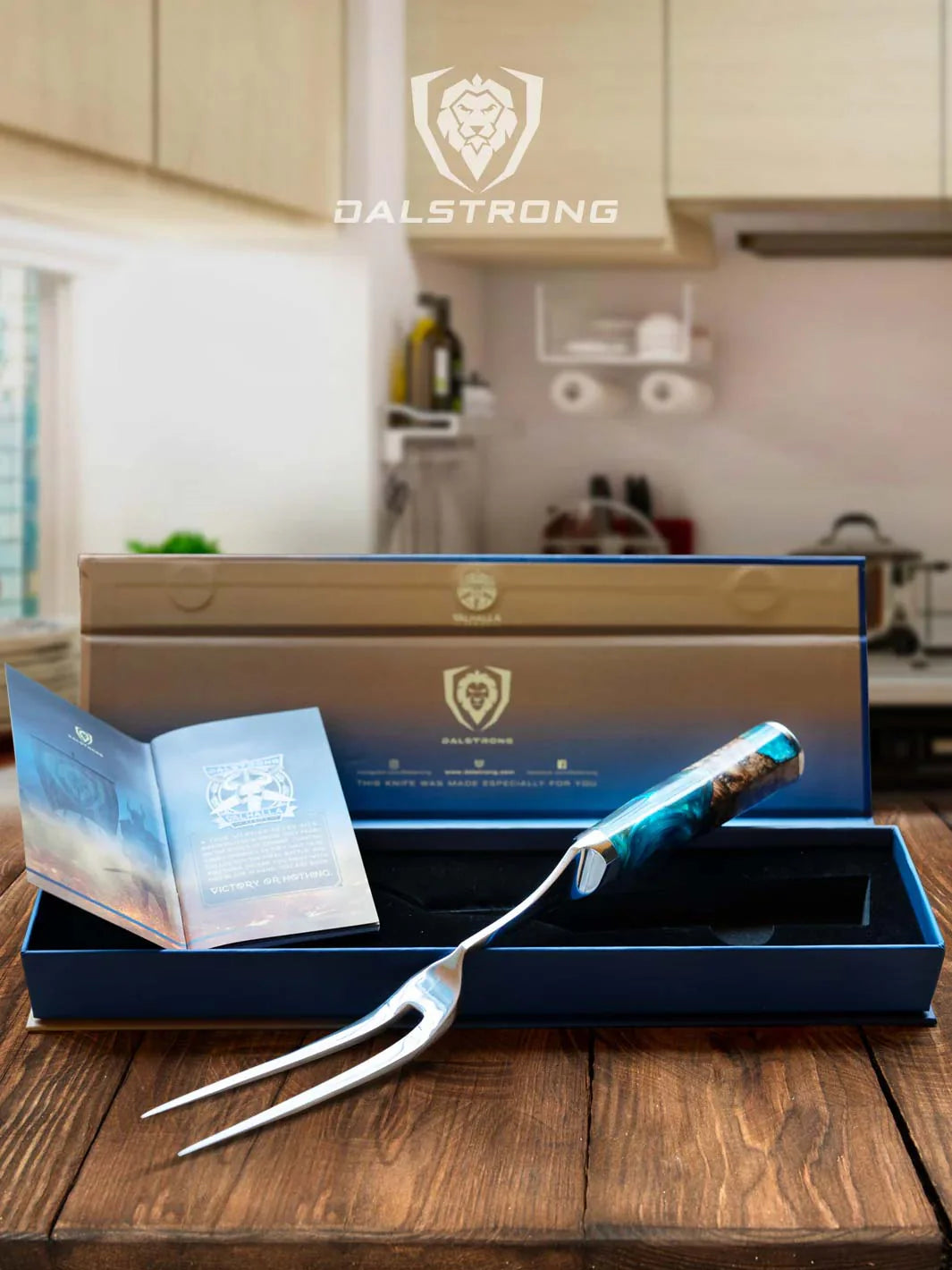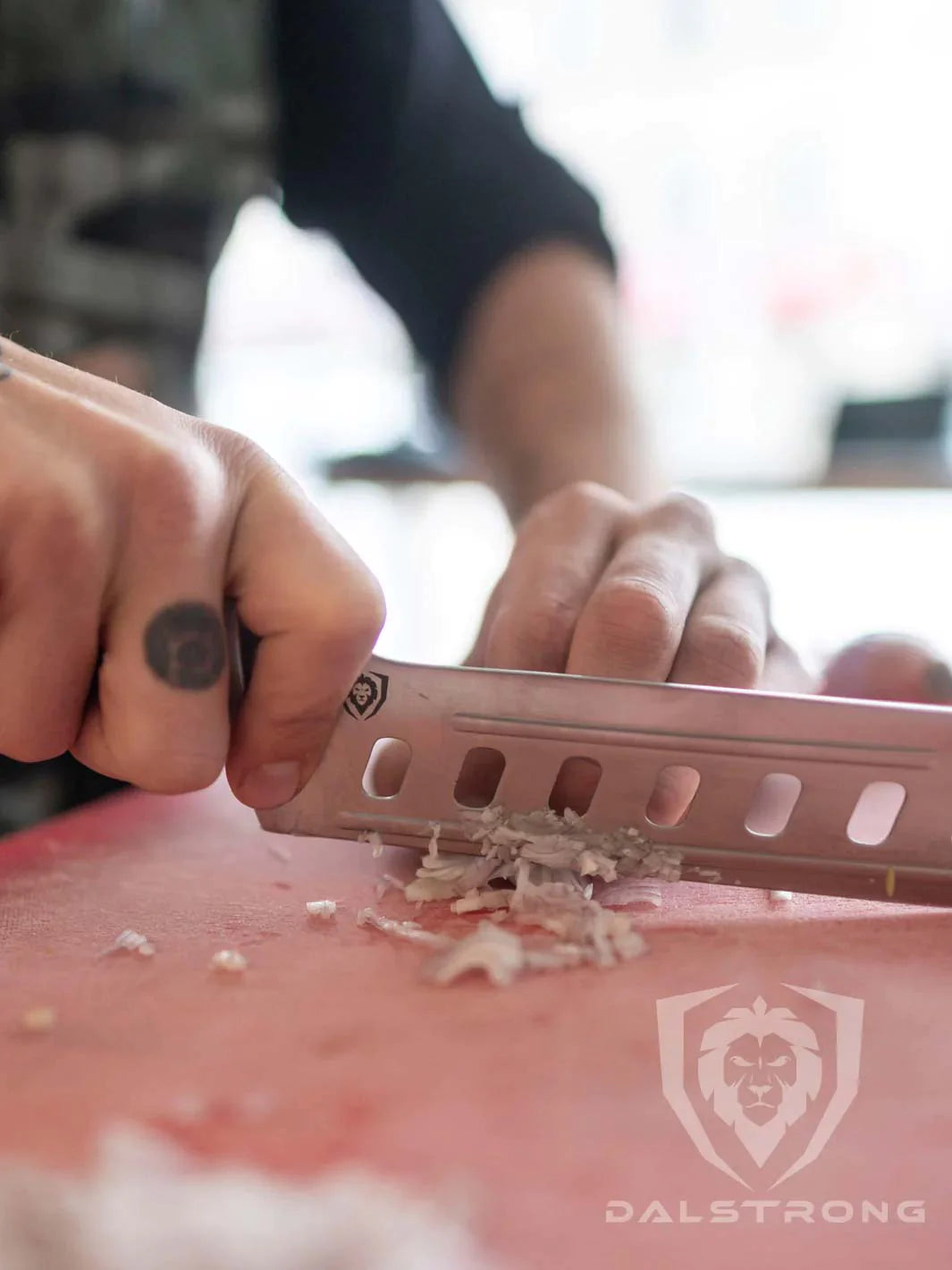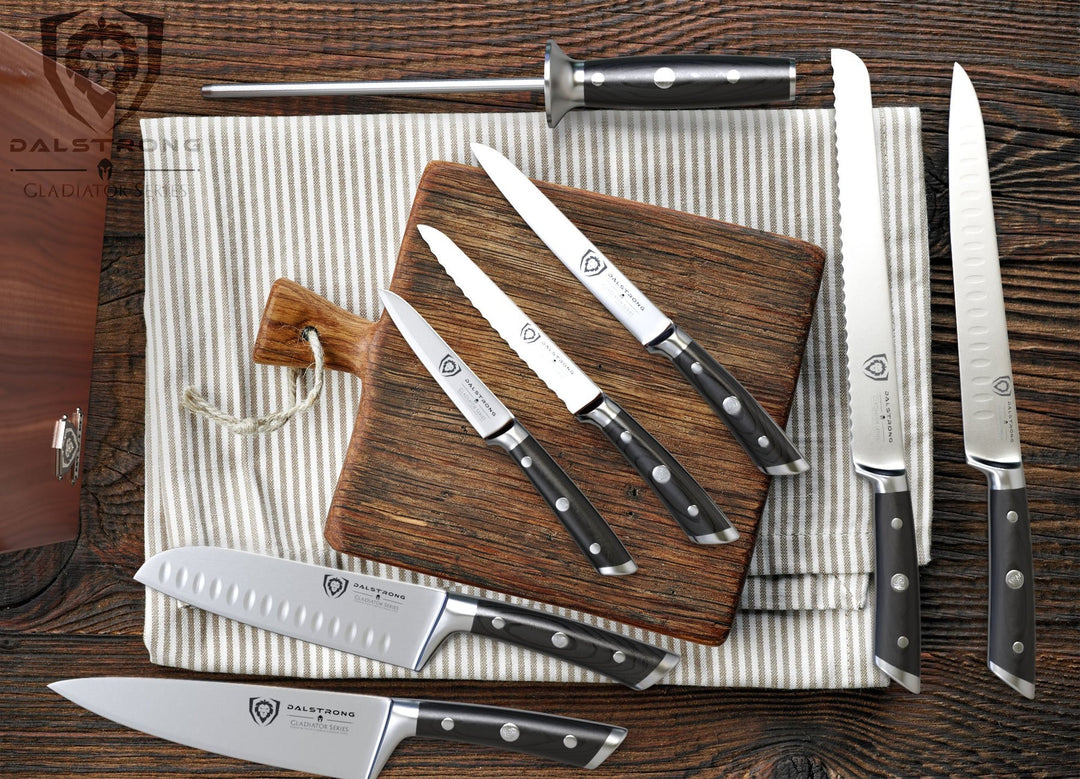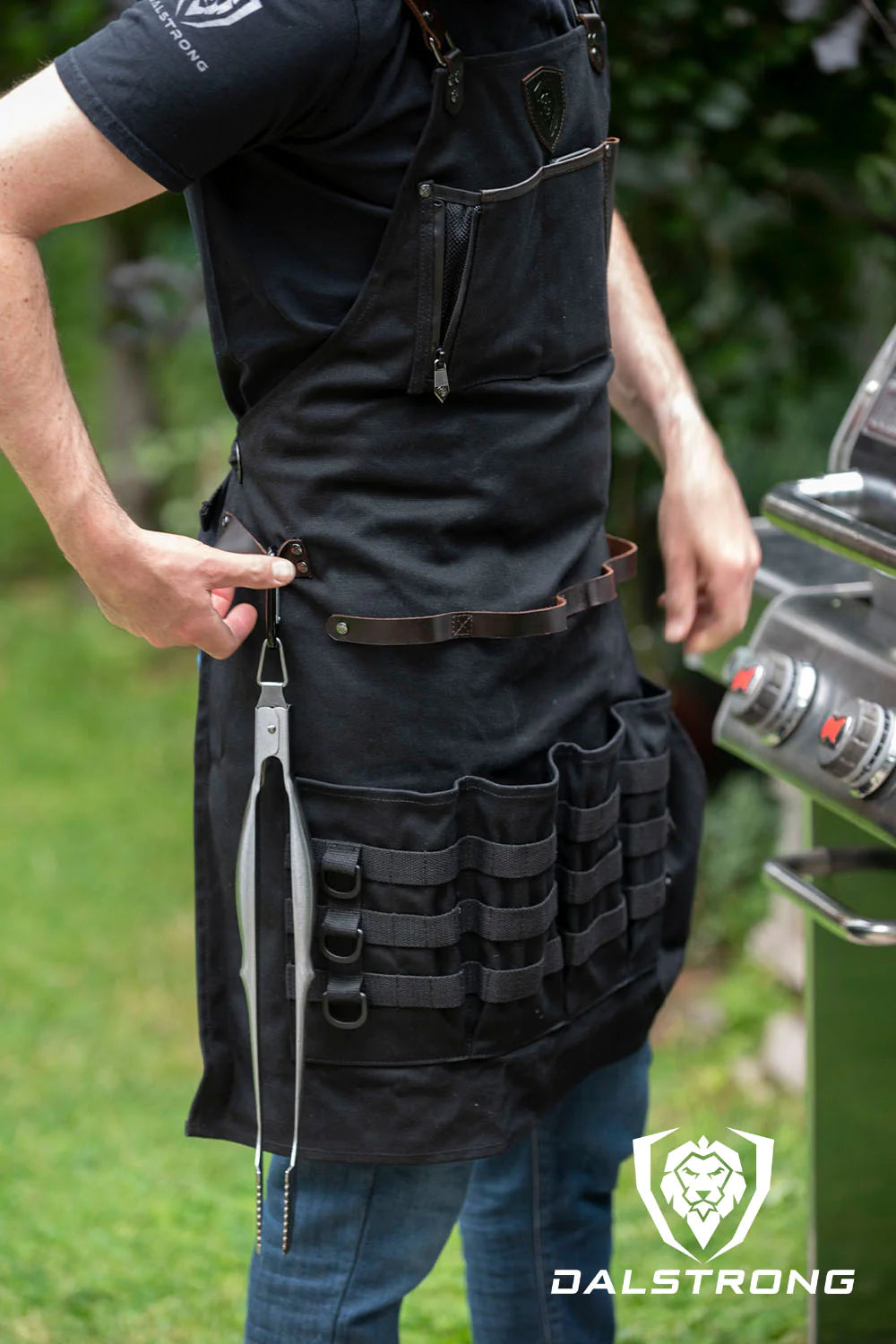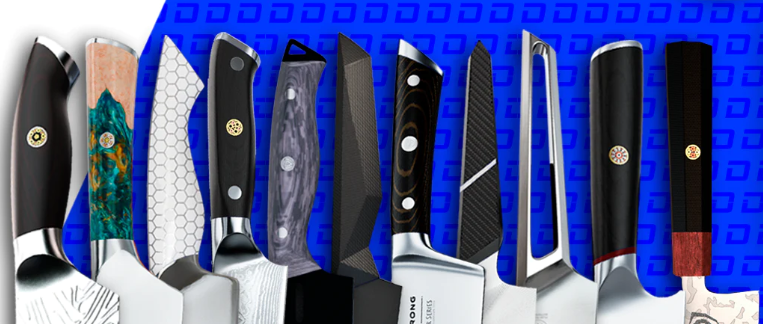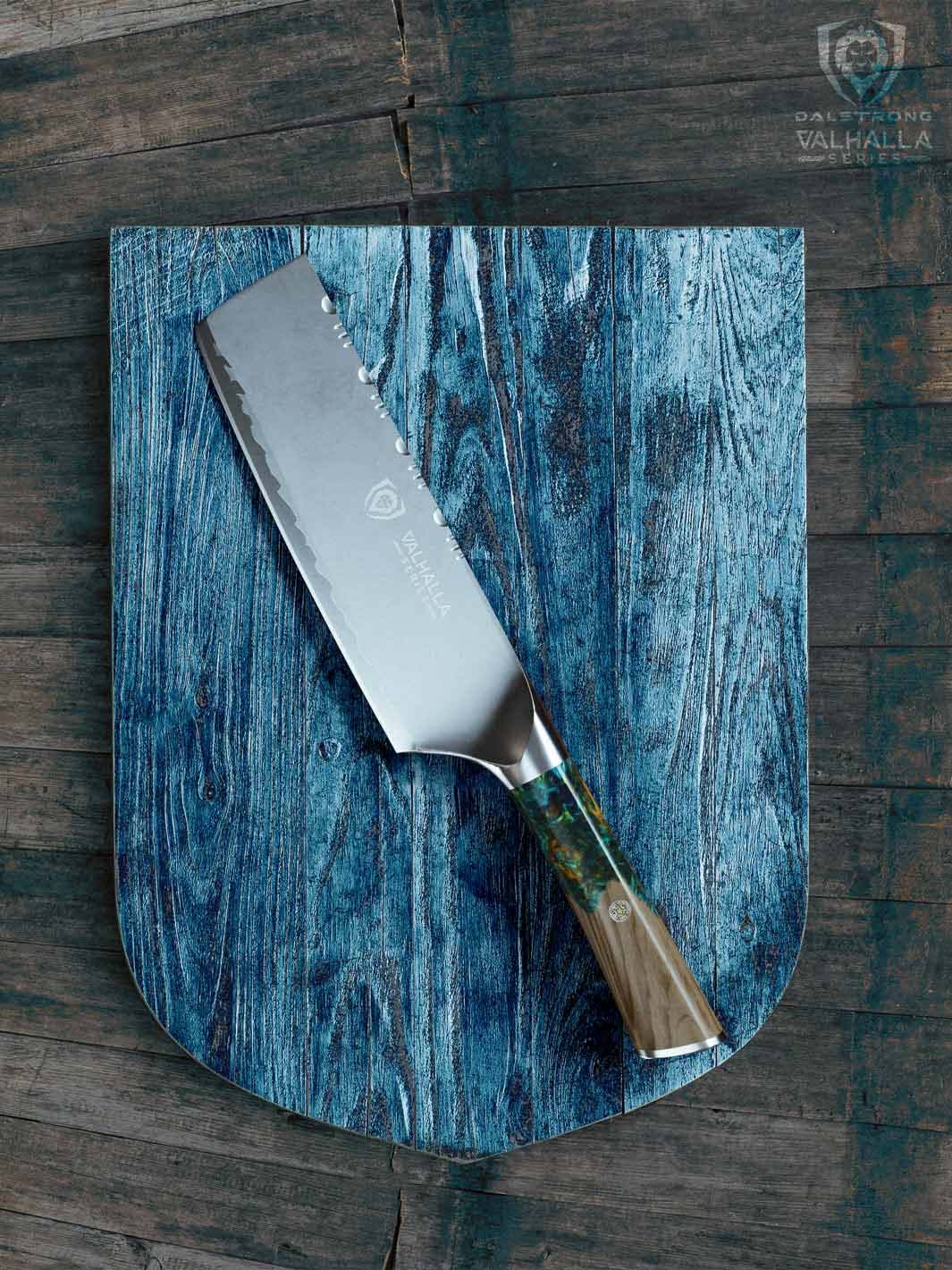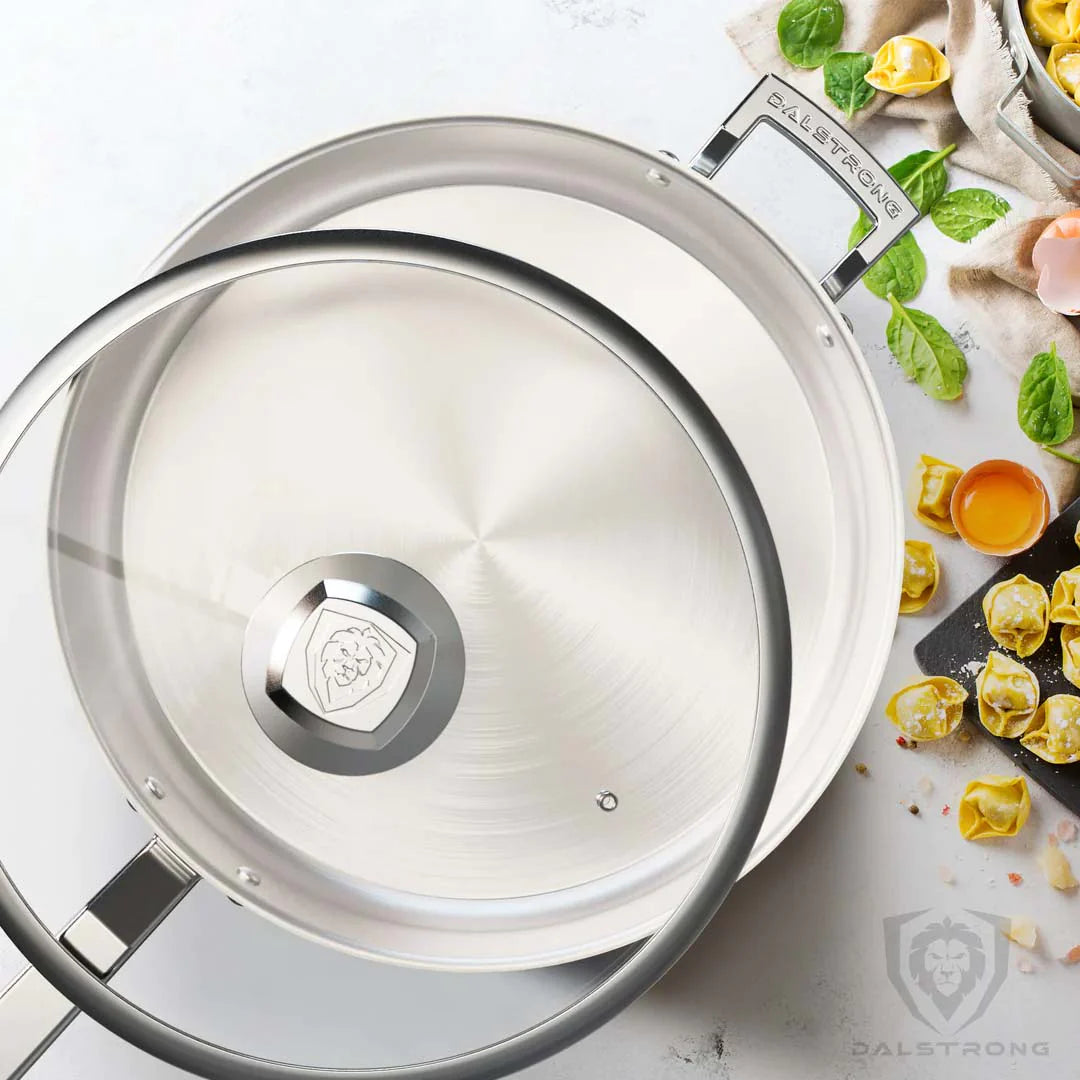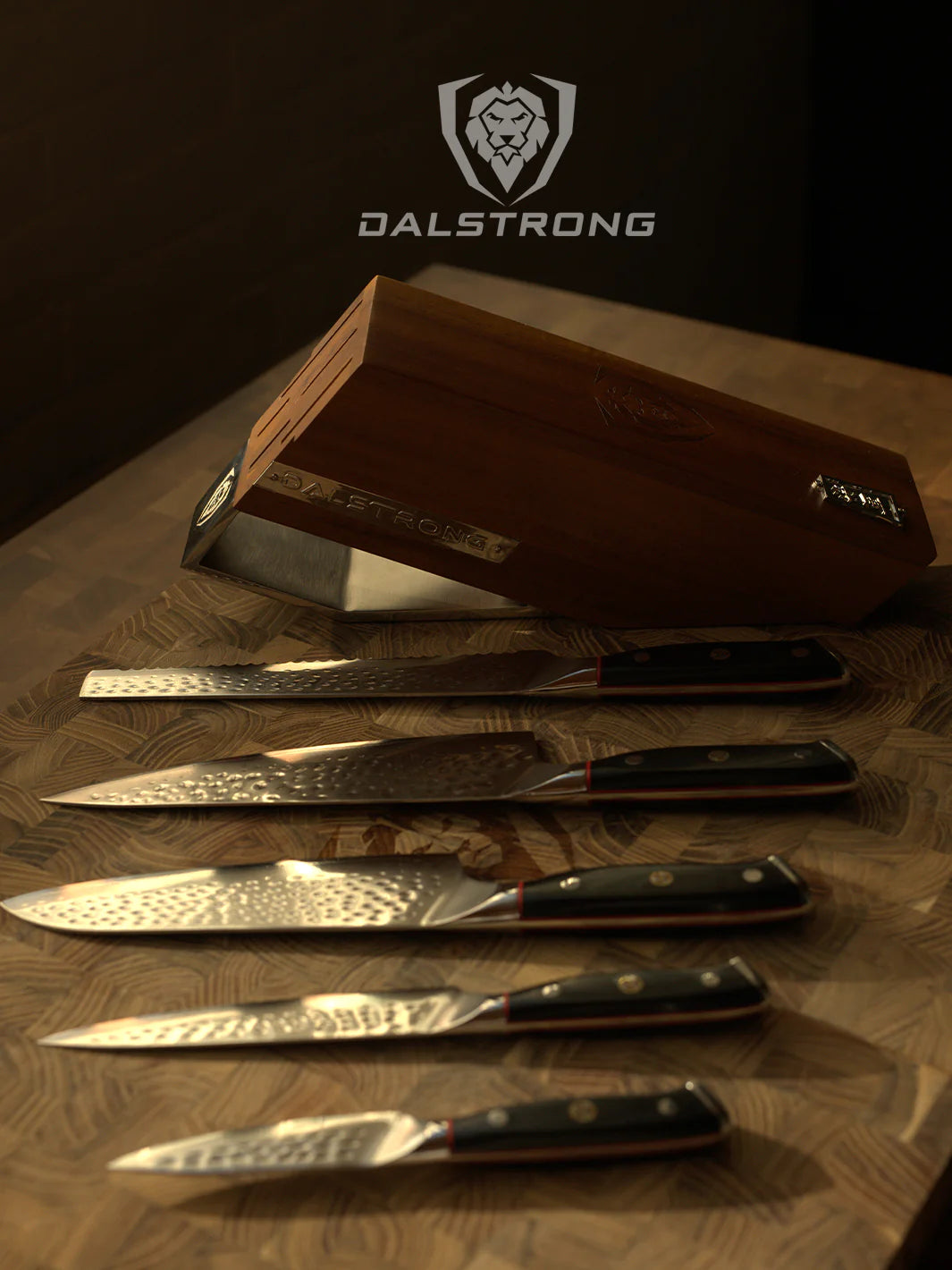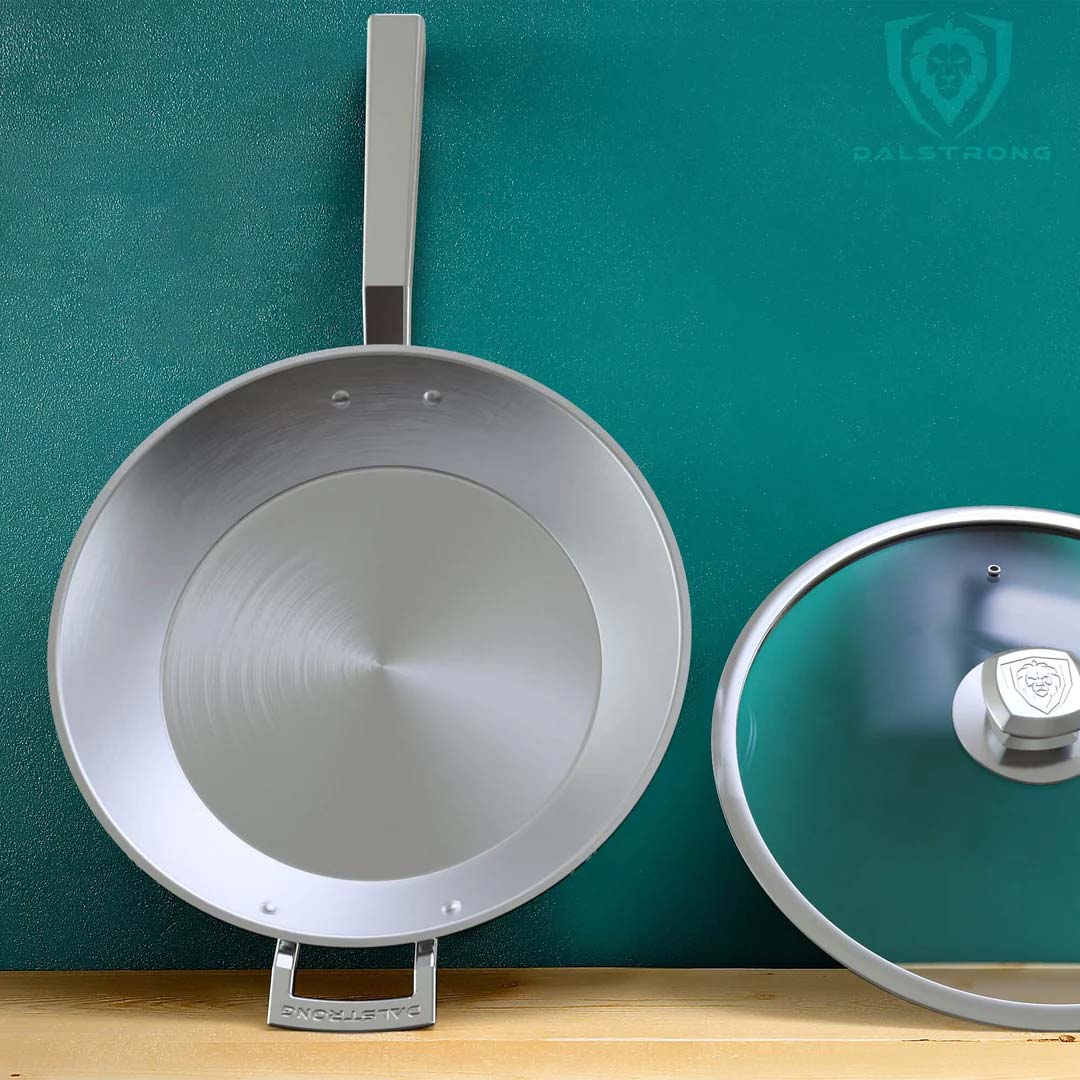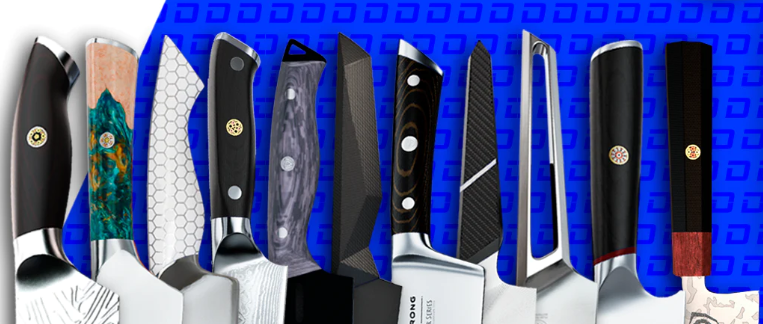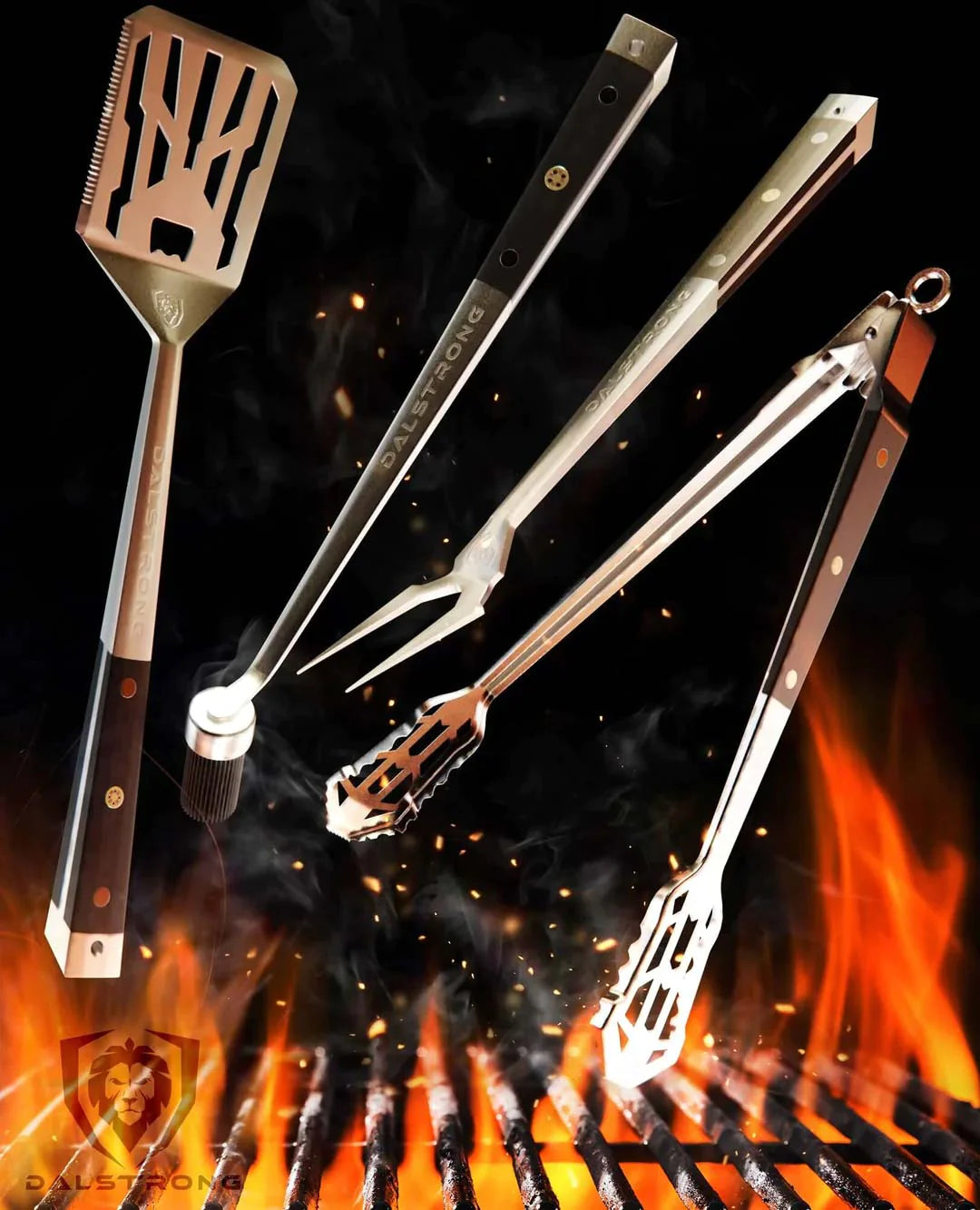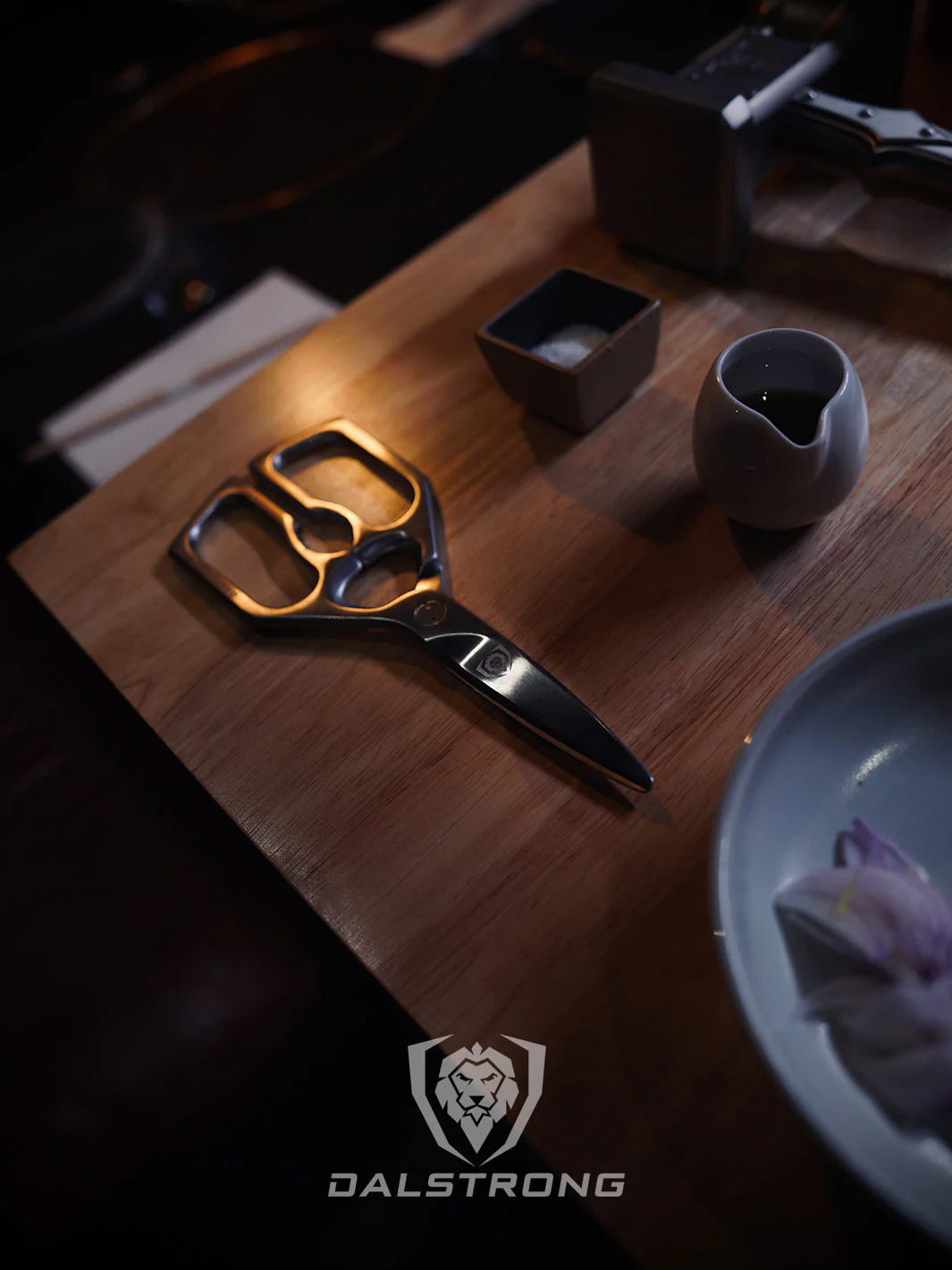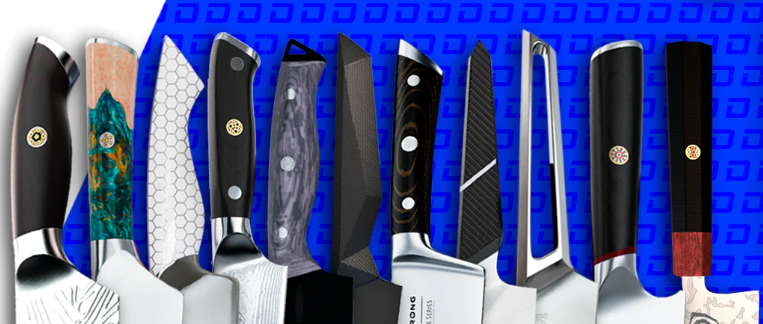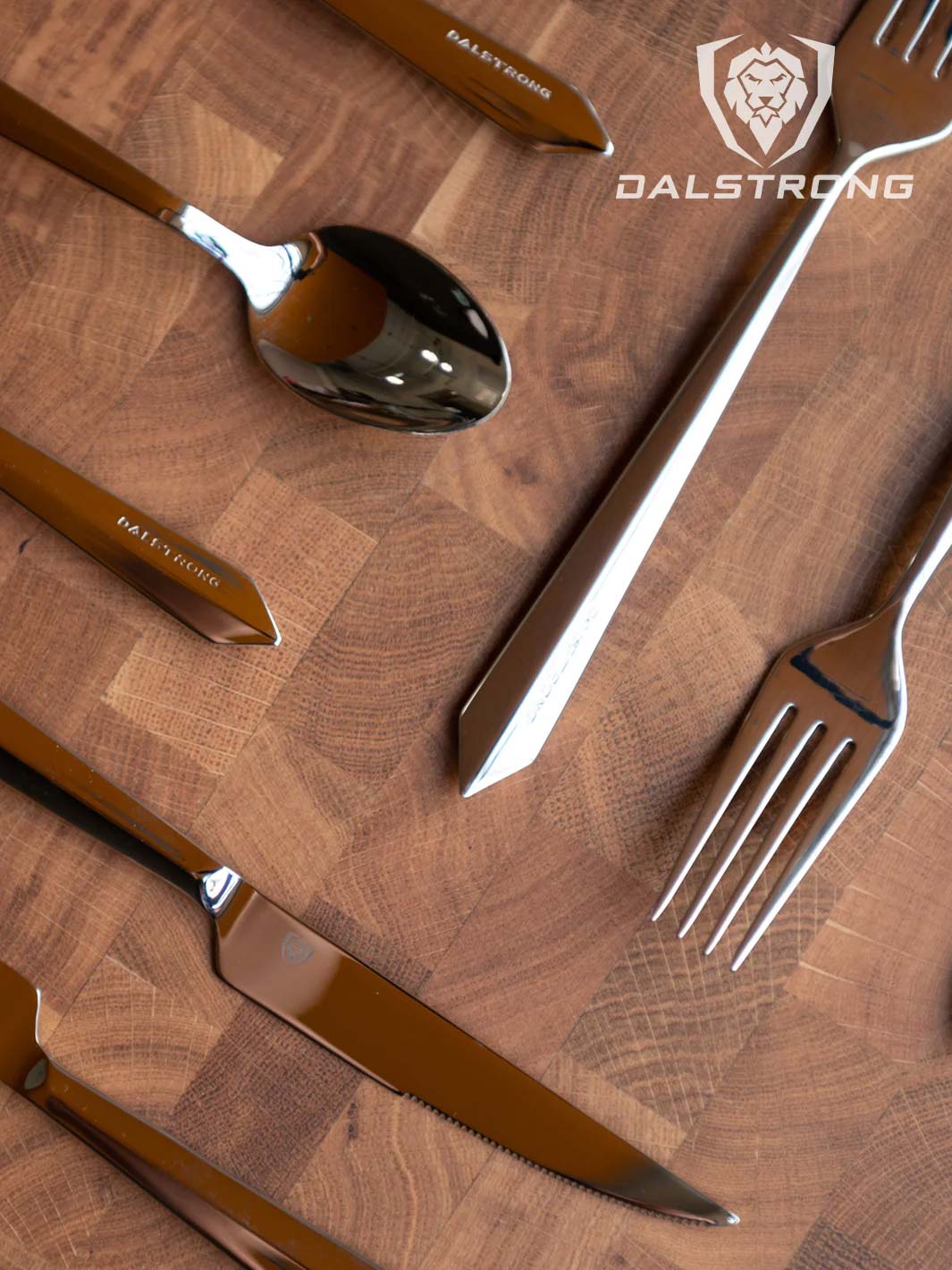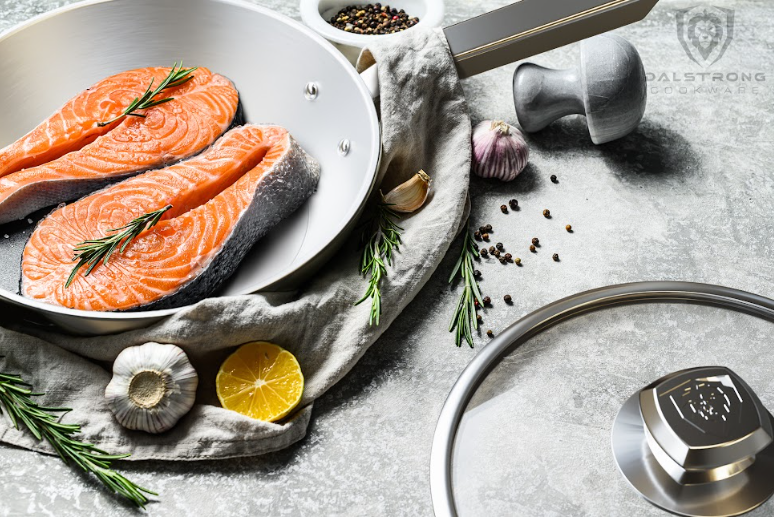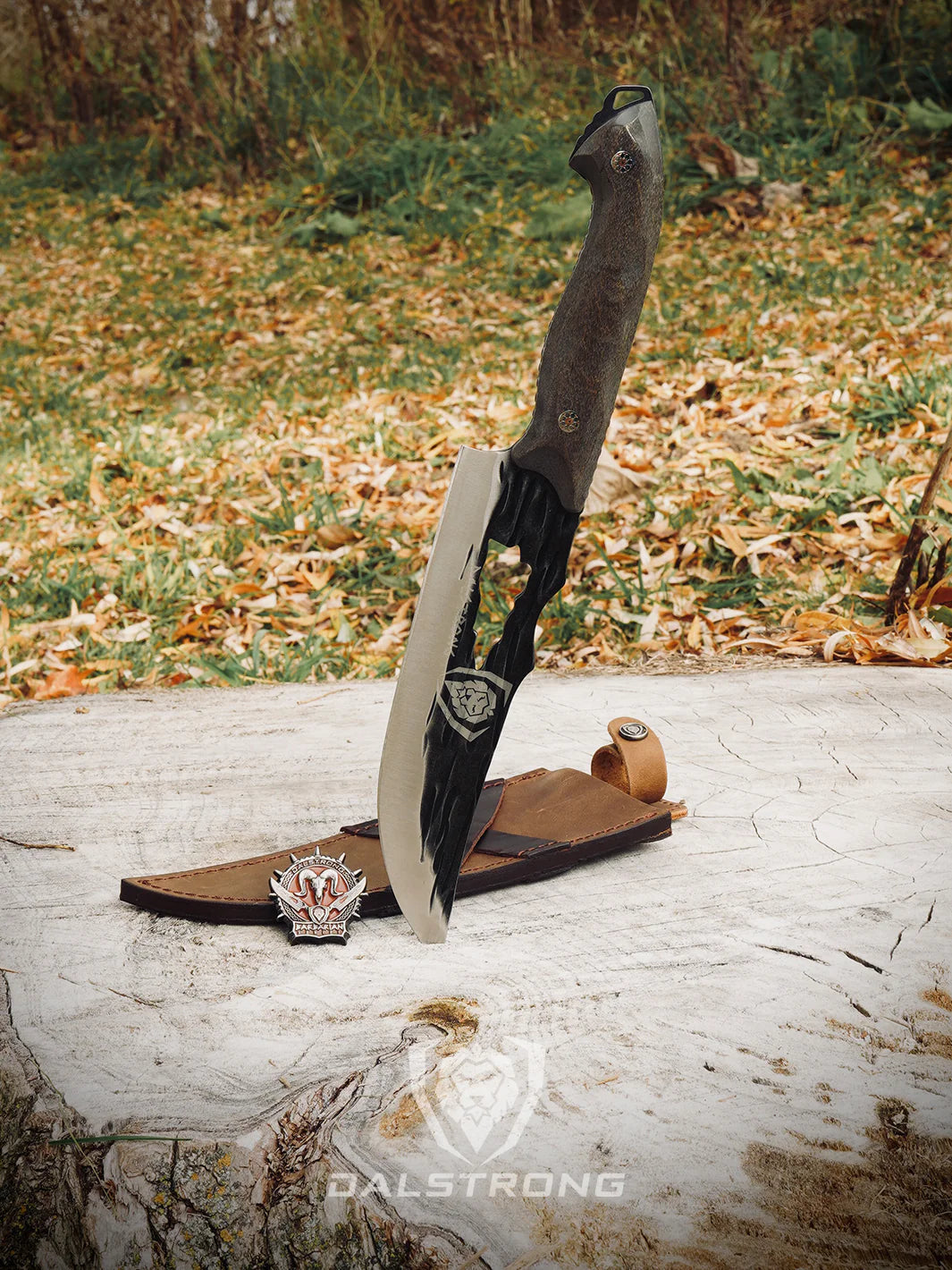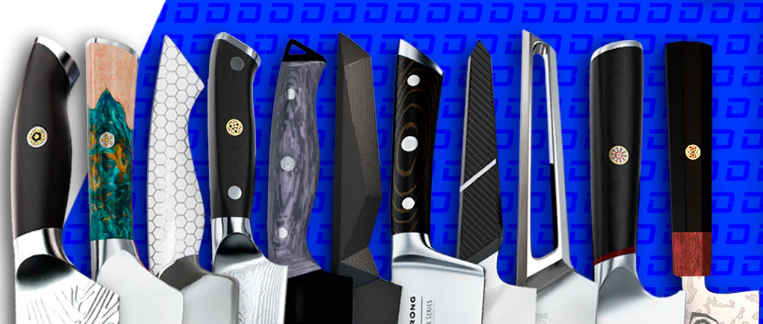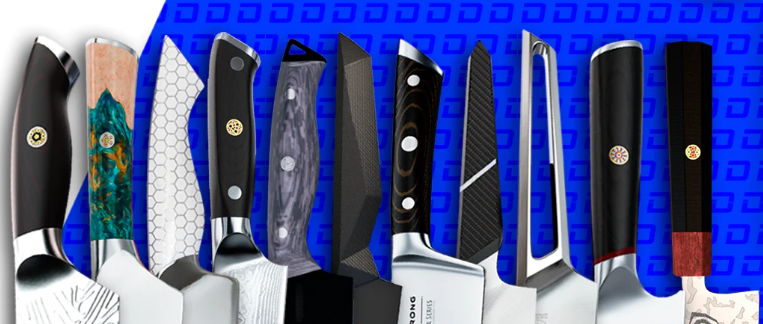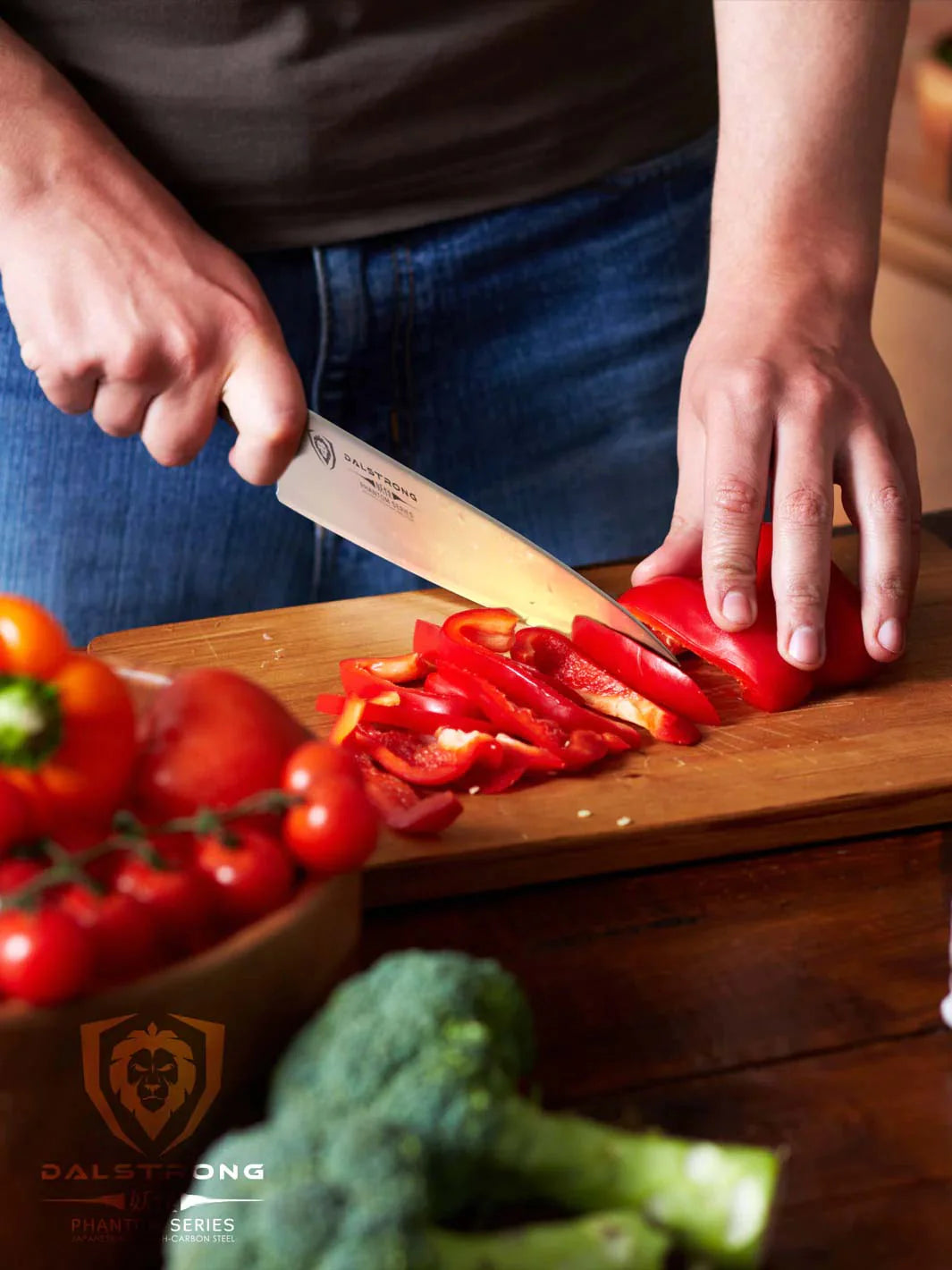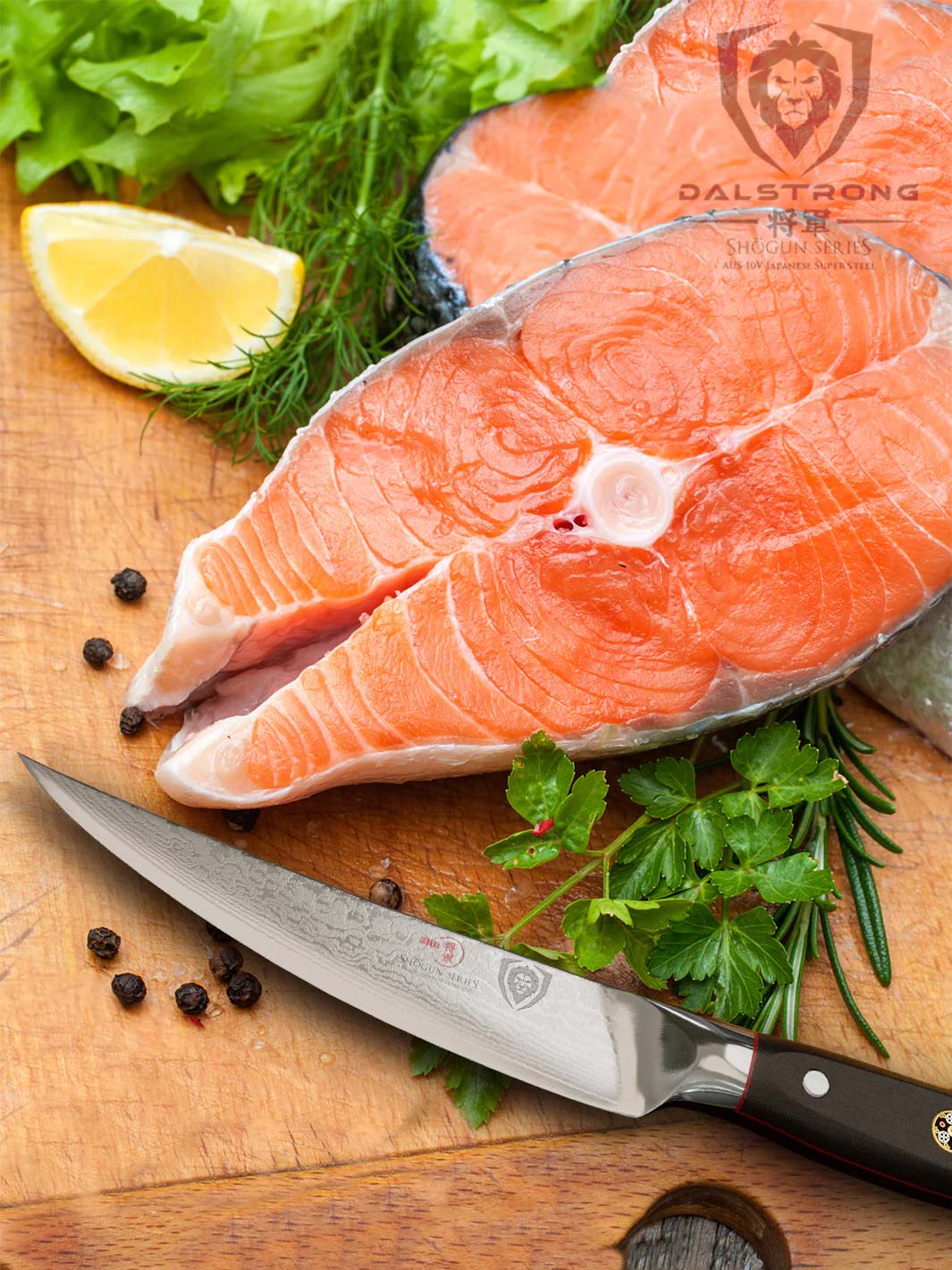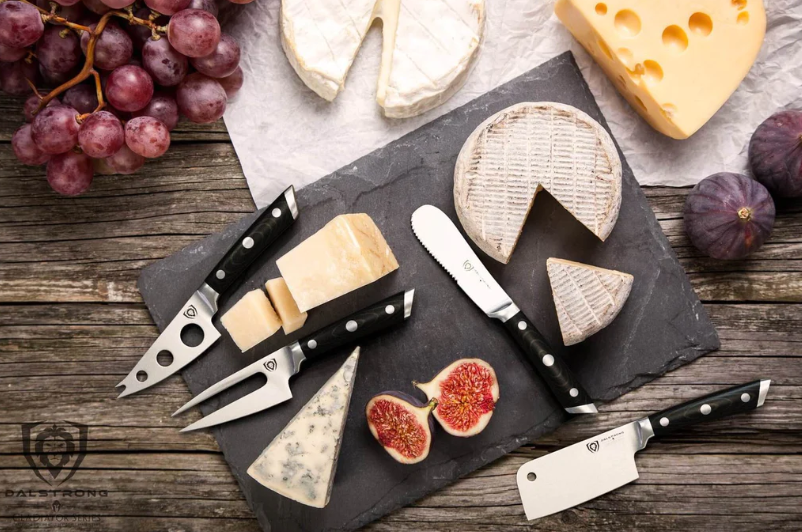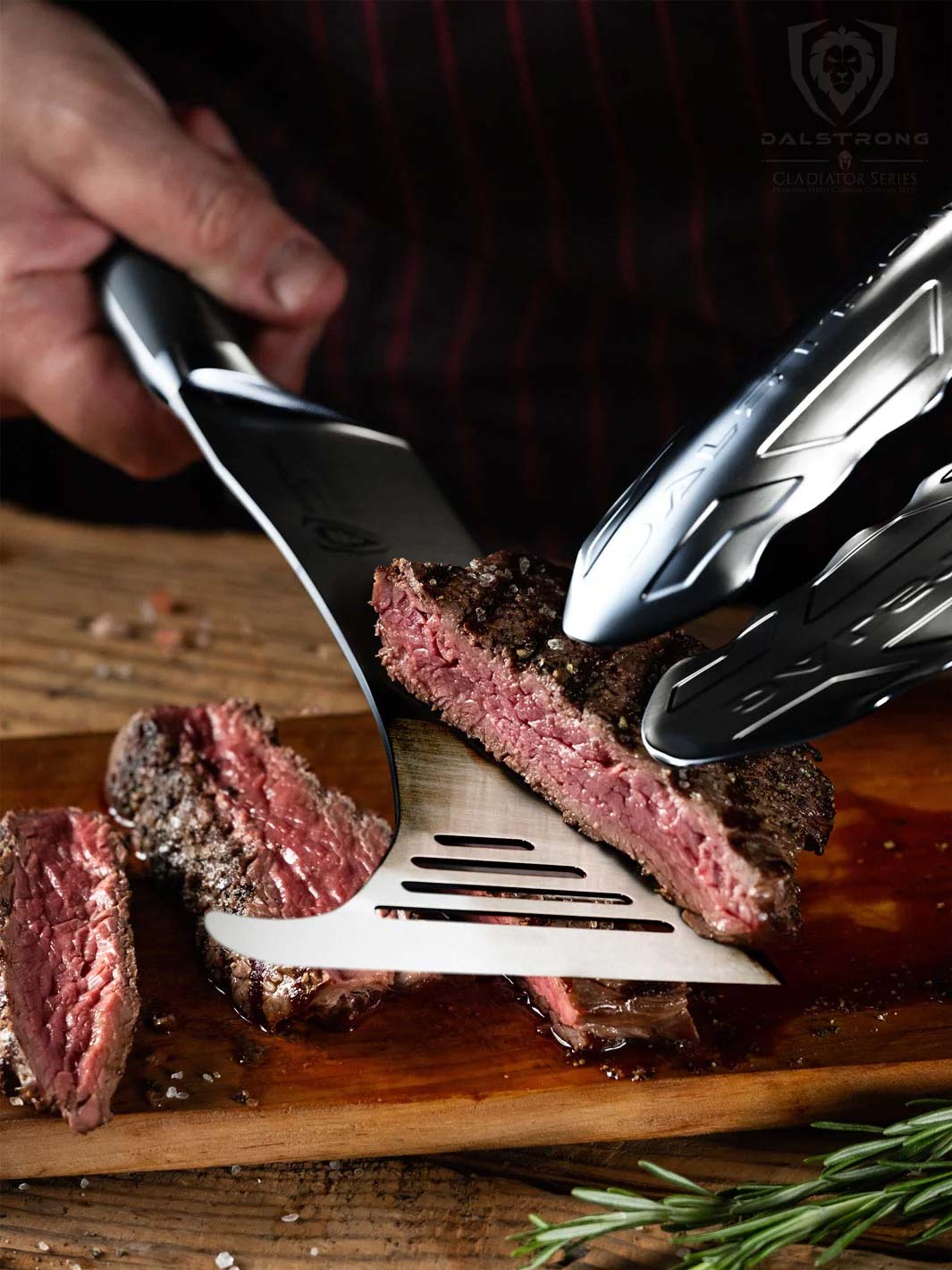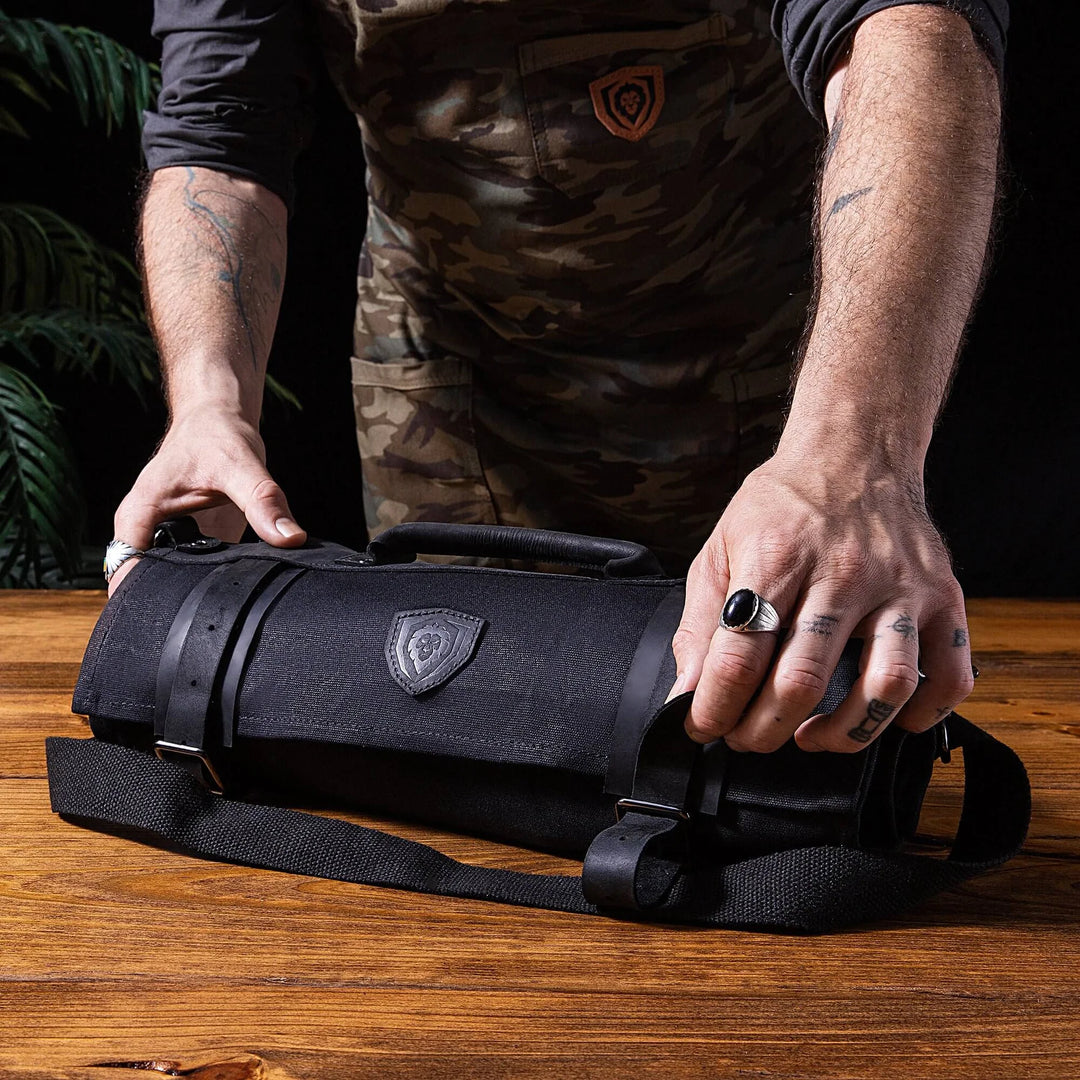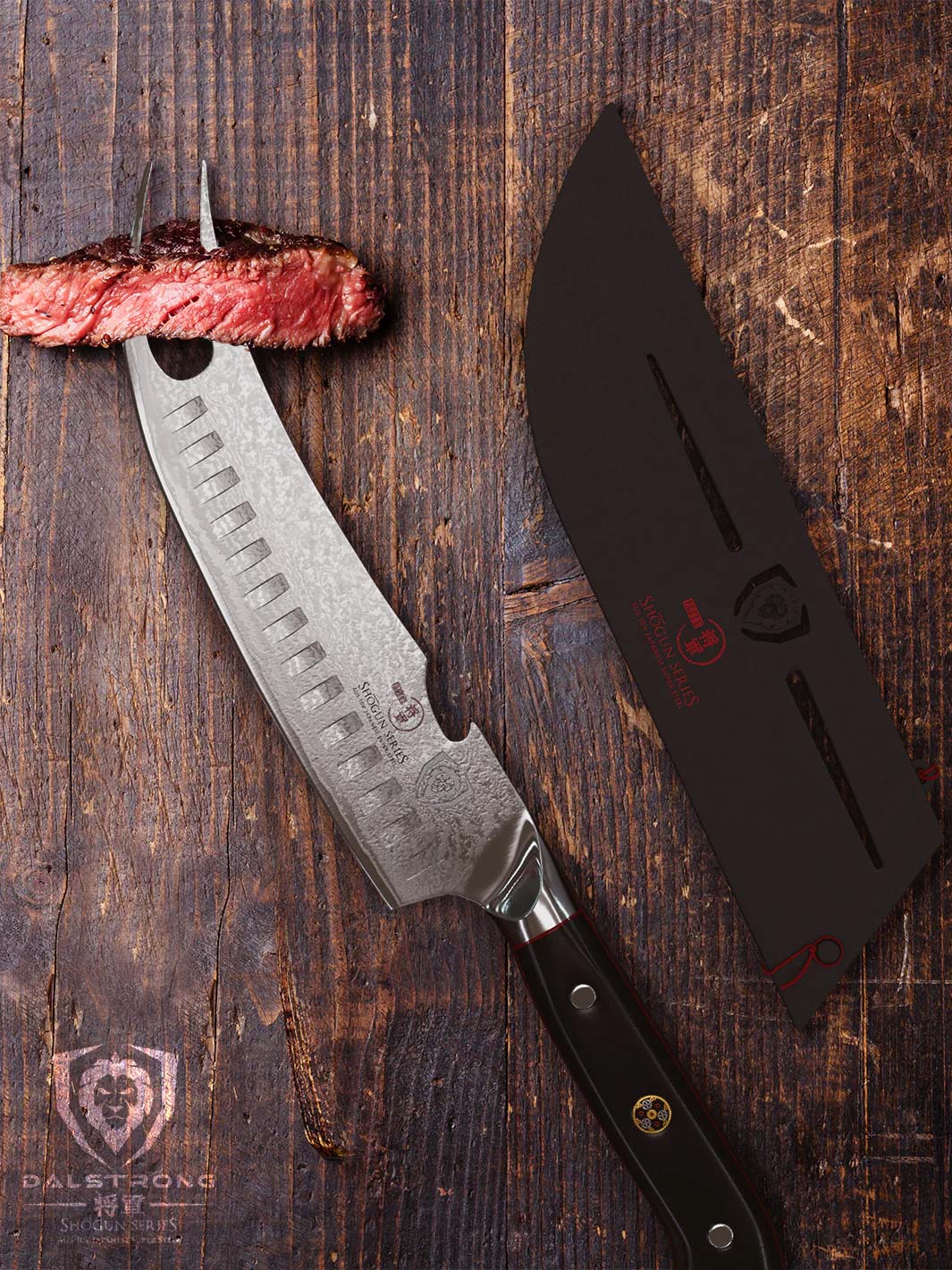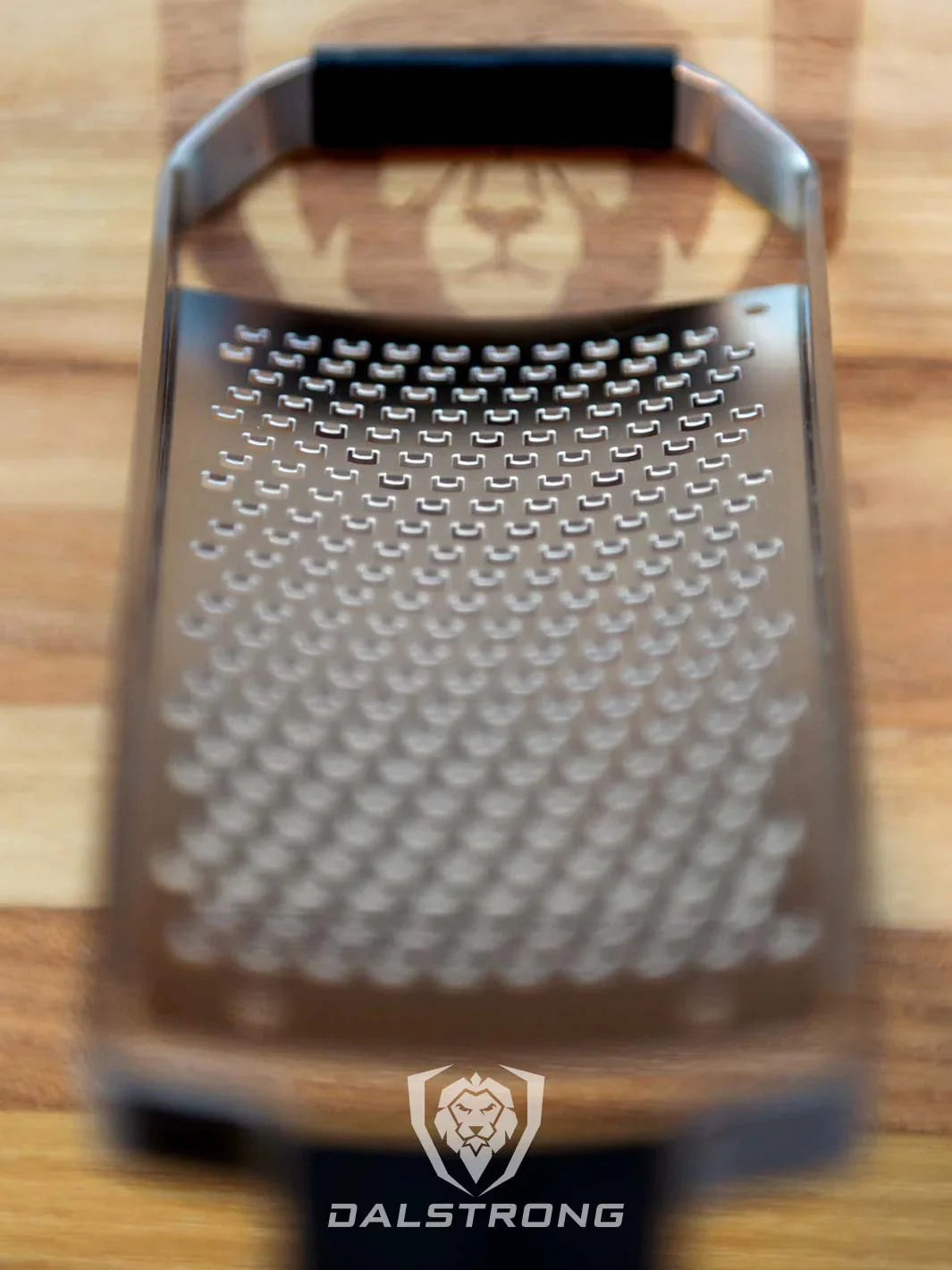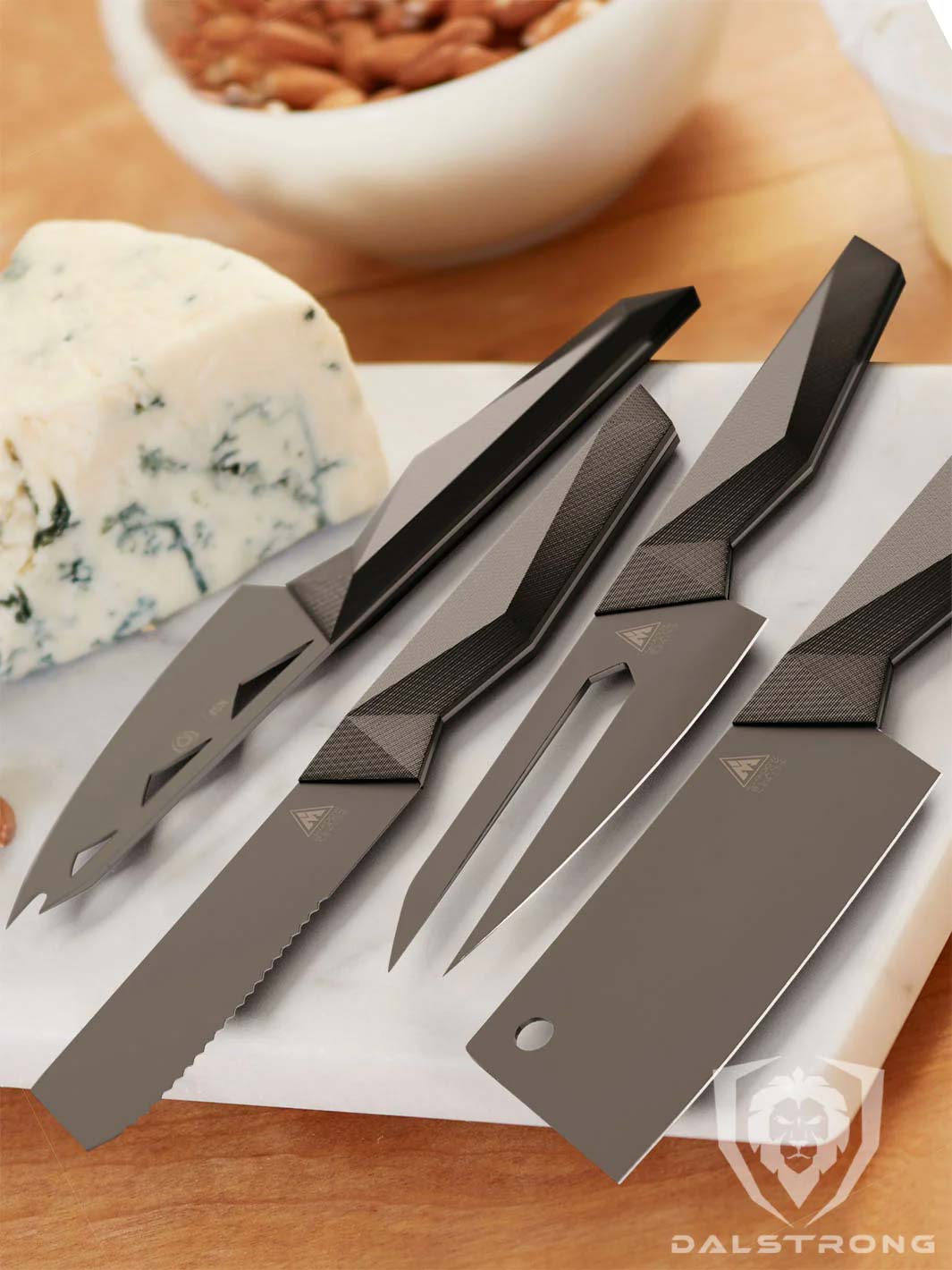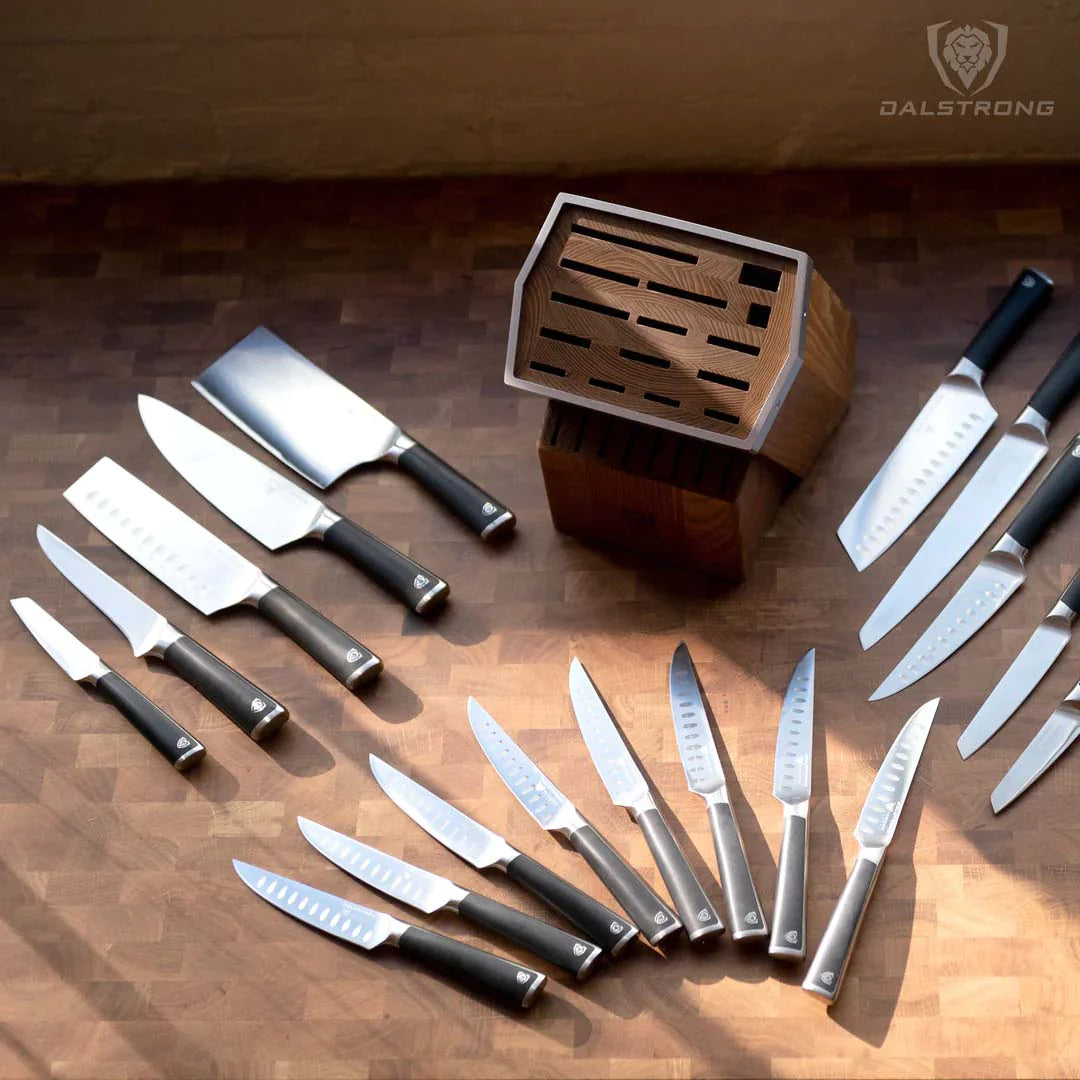What Is An Orange Peeler And How To Use One
Are you tired of struggling with sticky fingers and uneven peeling while trying to enjoy a juicy, refreshing orange fruit? Say goodbye to the frustration and hassle because the ingenious orange peeler is here to save the day! It's like magic in your hands, making the once boring task of peeling oranges an absolute breeze. Whether you're a citrus orange enthusiast, a health-conscious snacker, or simply seeking a convenient kitchen gadget, an orange peeler is your ultimate companion.
Get ready to unleash the zestful possibilities of the orange peeler as we dive into its definition and uses, guide how to use one, its intriguing history, and some Dalstrong peelers perfect for your citrus adventures. Let's peel back the layers and discover the citrusy wonders that await!
1. What Is An Orange Peeler
 Bird's Beak Peeling & Paring Knife 3" Shogun Series ELITE Dalstrong
Bird's Beak Peeling & Paring Knife 3" Shogun Series ELITE Dalstrong
A citrus orange peeler is a simple tool and one of the most underrated kitchen gadgets designed specifically for removing the peel or rind from oranges and other citrus fruits. It is typically a small handheld device made of plastic or metal. An orange peeler and any fruit or vegetable peeler in general usually consist of a curved or pointed blade with a hook or notch at the end.
To use it, you insert the hook into the peel of the orange citrus and slide it along the circumference, separating the peel from the fruit without damaging the flesh. The design of an orange peeler makes it easier and more efficient to remove the peel compared to using your fingers alone. It can be a handy tool for quickly and cleanly peeling oranges, especially if you eat them regularly or need to prepare them in large quantities.
2. How To Use An Orange Peeler

To use an orange peeler, follow these steps:
- Select a ripe orange: Choose an orange citrus that is firm, without any soft spots or blemishes.
- Hold the orange: Take the orange in one hand and hold it firmly but gently to provide stability during the peeling process.
- Position the orange peeler: Take the orange citrus peeler in your other hand and position it with the hook or notch facing the orange.
- Insert the peeler: Insert the hook or notch of the fruit peeler into the peel of the orange, near the top or stem end. Push it in just enough to catch the peel.
- Slide the peeler along the circumference: While maintaining a firm grip on the orange citrus, slide the peeler along the circumference of the orange, from the top to the bottom, or vice versa. Apply gentle pressure to separate the peel from the fruit.
- Repeat the process: Continue sliding the peeler along the orange's circumference, working your way around until you reach the starting point. The peel should come off in a spiral or circular shape as you go.
- Remove the peel: Once you have made a complete circle, gently pull the peel away from the orange. It should come off easily, leaving the fruit exposed.
- Enjoy the peeled orange: Once the peel is removed, you can enjoy the peeled orange citrus as is or cut it into slices for easier consumption.
Remember to exercise caution while using an orange peeler to avoid any injuries. It's always a good idea to follow the manufacturer's instructions and guidelines specific to your orange peeler, as designs may vary slightly.
3. Popular Dalstrong Peelers
1. Dalstrong Y Peeler3 Blades Case
The Y Peeler features a unique Y-shaped design with three interchangeable blades, each tailored for specific peeling tasks. The blades are made from high-quality peelers stainless steel, ensuring durability and sharpness. The ergonomic handle is crafted for a comfortable grip, providing control and reducing hand fatigue. The peeler also comes with a protective case that safely stores the blades when not in use.
PROS:
- The three interchangeable blades offer versatility, allowing you to peel a variation of vegetables and fruits with ease.
- The stainless steel blades are made to hold out against regular use, maintaining their sharpness over time.
- The ergonomic handle of the Y Peeler is designed for a comfortable and secure grip, minimizing hand strain during prolonged peeling tasks.
CONS:
- Switching between the different blades may require some practice initially, especially if you're not familiar with using a Y Peeler or different blade types.
- Some people may select a wider handle for more control.
2. Dalstrong Swivel Straight Peeler 3 Blades Case
The Swivel Straight Peeler features a straightforward design with a swiveling blade that adjusts to the contours of fruits and vegetables, ensuring efficient and precise peeling. It comes with three interchangeable blades, each specifically designed for different peeling tasks. The blades are made from high-quality peelers stainless steel for durability and sharpness. The peeler also includes a convenient case for safe storage of the extra blades.
PROS:
- The swiveling blade on the peeler smoothly adapts to the shape of the produce being peeled, minimizing waste and maximizing efficiency.
- These blades can be easily swapped depending on the desired peeling technique or produce being prepared.
- The stainless steel blades are not only strong but also maintain their sharpness for extended periods of use.
CONS:
- As with any new peeler, there may be a learning curve to become accustomed to the swiveling motion for efficient peeling.
- A Y-shaped peeler is much ideal for cutting thin strips of skin, in case that is what you want.
3. Dalstrong Bird's Beak Paring Knife Peeler
The Bird's Beak Paring Knife can be used as an orange citrus peeler and even as a fruit slicer. It features a compact 3" blade with a distinct curved shape resembling a bird's beak, allowing for precise control and maneuverability. The slicer cutter blade is forged from high-carbon German steel, ensuring exceptional sharpness, durability, and resistance to corrosion. It is part of the Crusader Series, which signifies its professional quality. Additionally, this fruit peeler is NSF certified, meeting the highest standards of safety and sanitation in the food service industry.
PROS:
- The unique curved shape of the bird's beak blade enables precise peeling and intricate work, making it ideal for tasks like creating garnishes, shaping fruits, or removing blemishes.
- The compact size and ergonomic handle of the peeler provide excellent control and maneuverability, allowing for intricate movements and precise peeling.
- It demonstrates its suitability for both home and commercial use.
- The bird's beak shape of the blade makes this peeler ideal for specific tasks, such as shaping or intricate peeling.
CONS:
- This paring knife is crafted for accurate tasks and superb for peeling, but it may not be simple to do other stuff with it, like dicing.
4. Bird's Beak Peeling & Paring Knife 3"
The Bird's Beak Peeling & Paring Knife 3" from the Shogun Series ELITE by Dalstrong is a top-tier kitchen tool designed for precision and paring tasks, perfect for peeling a citrus orange fruit. The blade is expertly crafted from Japanese AUS-10V super steel, known for its outstanding sharpness, edge retention, and resistance to corrosion.
PROS:
- Perfect for fruit peeling and tasks that require detailed work, such as shaping fruits, creating decorative cuts, or removing blemishes.
- Crafted from Japanese AUS-10V super steel, the blade offers superior sharpness, and excellent edge retention.
- The knife is built to withstand the rigors of daily use in a busy kitchen.
CONS:
- It may not be as versatile for other general slicing or cutting applications.
- The price point can be a little high for some.
5. Dalstrong Paring Knife 3.75" Shadow Black Series
This paring knife features a 3.75" blade with a sharp, straight edge, making it perfect for delicate tasks like peeling, slicing, cutting, and trimming small fruits like orange fruit, tomato fruit, lemon citrus, and even vegetables like potato carrot. The blade is precision-forged from high-carbon German stainless steel and coated with a non-reflective black titanium nitride finish, giving it a stylish and modern look. This knife is part of the Shadow Black Series and is NSF certified, ensuring its suitability for use in professional food service environments.
PROS:
- The knife's sleek and modern design, with its black titanium nitride coating, adds a touch of elegance to your kitchen.
- This knife meets the stringent standards of safety and hygiene required in professional food service settings.
- Resistant to corrosion and stains.
CONS:
- The 3.75" blade may be too small for cutting tasks requiring longer blades.
- Some people might prefer the appearance of a classic paring knife.
4. Frequently Asked Questions
What is orange peeler used for?
An orange peeler, as the name suggests, is a tool specifically crafted to peel oranges and lemon lime easily and efficiently. It can also be used as a slicer cutter and vegetable fruit slicer.
Is there a tool to peel an orange?
Yes, there are tools specifically crafted to peel oranges easily and efficiently. One such tool is called an orange peeler or citrus peeler.
Who invented the orange peeler?
The invention of the orange peeler does not have a specific attributed inventor. Orange peelers have been used for many years, and their exact origins are unclear.
When were orange peelers invented?
The exact origins and timeline of the invention of orange peelers are not well-documented. However, the use of tools to assist in peeling citrus fruits like oranges has likely been practiced for centuries.






















































































































